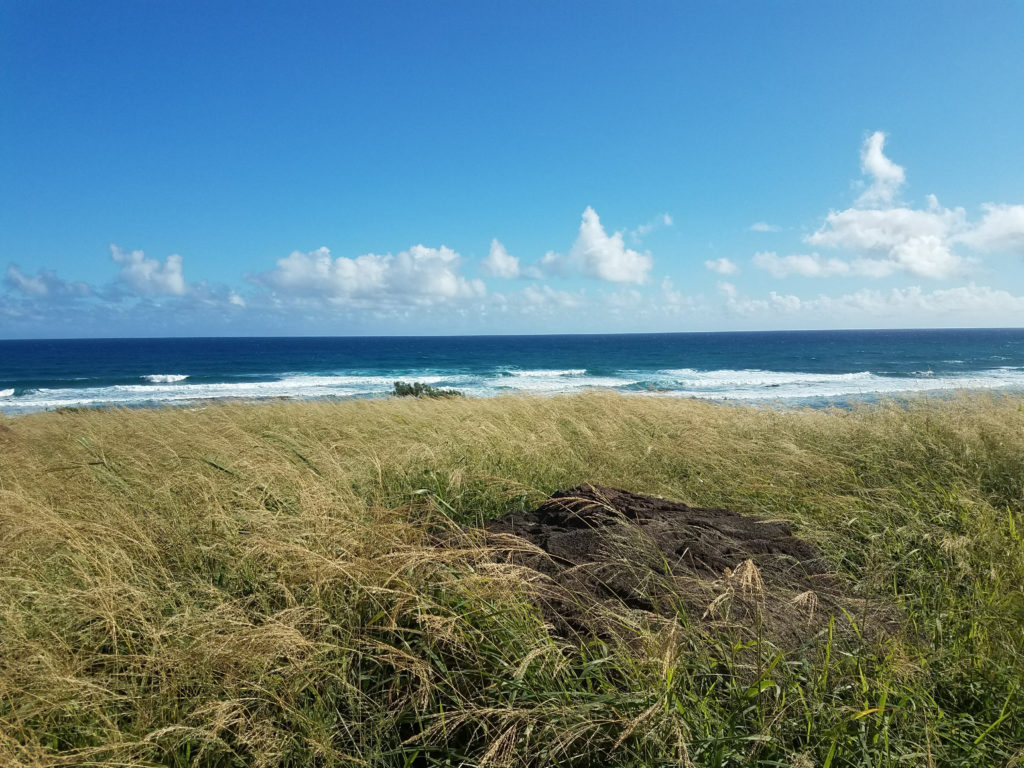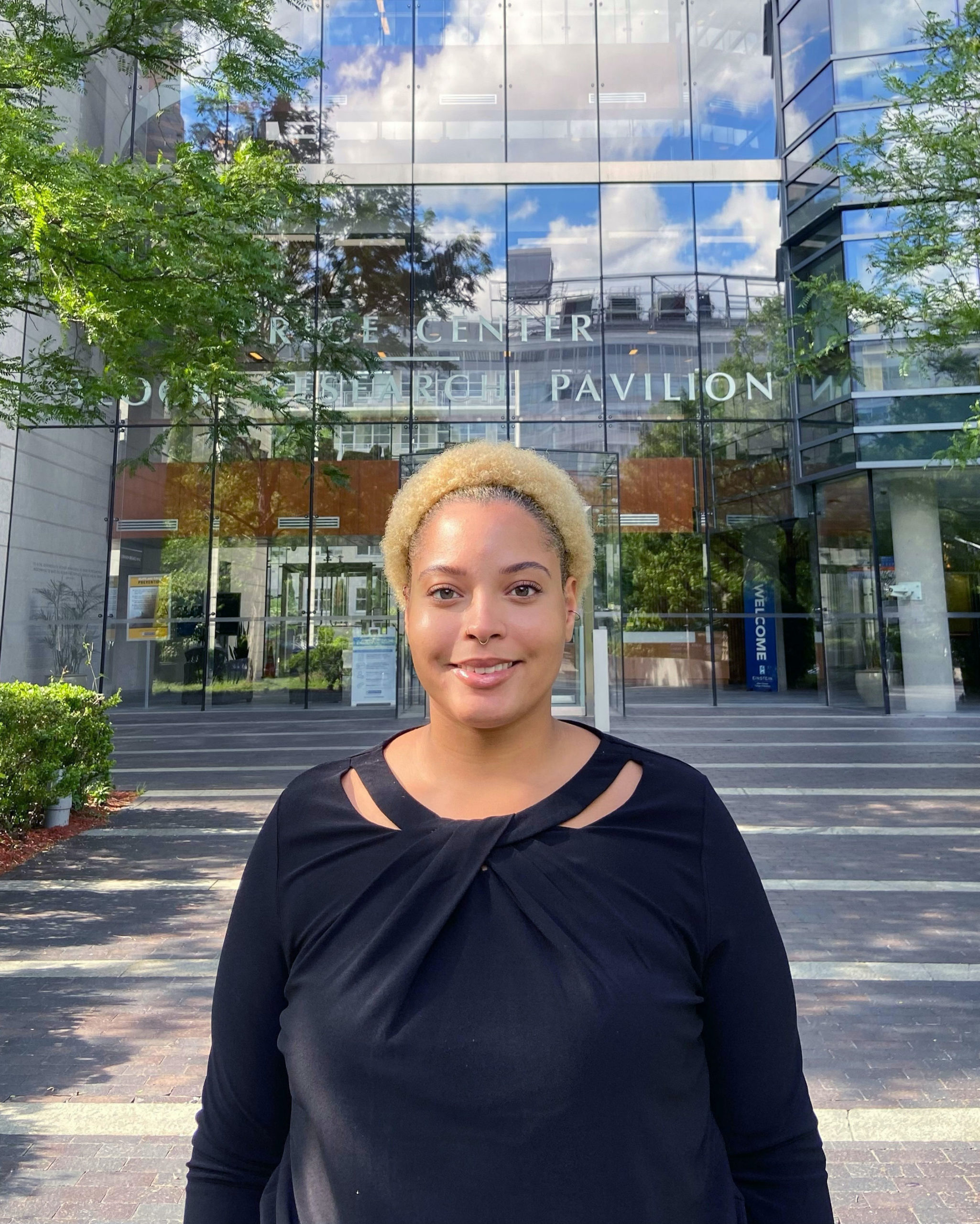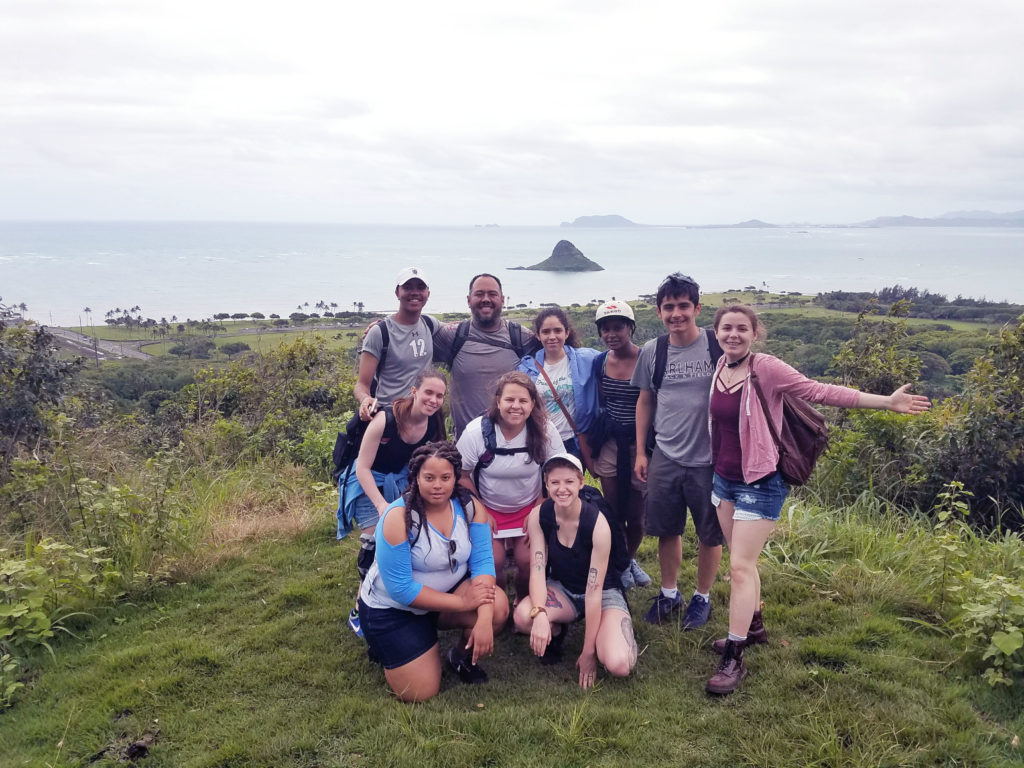How does Earlham put college within reach of underrepresented students and help them to make the most of it?
Now in a research training program at Albert Einstein College of Medicine, Kendra Parker ’21 was a proud member of both the LIFT and McNair programs, a pair of efforts at Earlham that help first-generation students who may not otherwise have flourished in college to do well and even, in the case of the McNair Program, to launch them towards graduate studies.
College can be tough enough even for folks with good-to-great resources. For low-income first-generation college students, however, the struggle is even greater. Forbes reports that low-income first-generation students are four times more likely to dropout than their classmates. And many can’t afford to go at all, of course. Earlham is committed to addressing both issues.
“Our programs reach out beyond our traditional student base because we want to break down barriers to an Earlham education,” said Phil Betz, vice president for enrollment management.” That’s an important part of the what Earlham stands for. Stories of families sending generation after generation of relatives to Earlham are amazing, and we love each and every one, but so are the stories about someone being the first of their family to go to college. We want them all here. To get those first-generation students here is not enough, however. We want everyone here to thrive. That takes even more institutional commitment.”


Kendra Parker ’21
LIFE-CHANGING OPPORTUNITY: Visiting Diamond Head in Hawaii and researching its cultural history
THE PROGRAM: The all-expenses-paid trip came as a part of the LIFT Program, which also gives first-generation students a leg up with resources on campus, information literacy and finding internships
Getting a LIFT
How should a college support its first-generation students? Ask a librarian. LIFT stands for the Library Immersion Fellows Team. The program matches small groups of first-generation students with a librarian during seven weeks of their first fall se-mester in an effort to help first-generation students understand all of the resources available to them on campus—from counsel-ing services to the Writing Center.
First-generation students often don’t feel as strongly con-nected to others and college life in general. That’s a recipe for students to leave early, explains Amy Bryant, director of Lilly Library. “ The LIFT Program helps them realize they aren’t in isolation—there are other first-generation students on campus and they do belong here.”
The program also teaches information literacy in a one-cred-it tutorial and gives each participant a laptop computer to put digital tools within their reach. In the spring, the LIFT program offers a course based on career discernment, designed to help students learn how to find, research and apply for internship opportunities.
For Parker, the LIFT Program helped her feel connected and built her sense of confidence in her academic career—confidence that would propel her past a four-year bachelor’s degree. “LIFT kept motivating me.”
While in the LIFT Program, students do more than learn about resources—they learn about themselves.
For starters, says Bryant, Earlham reinforces that being a first-generation student is something to be celebrated, that they are ready for greater challenges and even more new experiences.
One of those experiences may be studying off-campus.
All LIFT students are eligible to apply for an all-expenses-paid immersive term at the end of their first year. Students have visited places like Montréal, Hawaii and Italy. The 2020 immersive term was planned for Germany, but was post-poned due to COVID-19. Bryant hopes LIFT students can enjoy that off-campus experience in 2023.
Parker was with the cohort who visited Hawaii. She submit-ted a research proposal on the Diamond Head landmark, an inactive volcano with significant cultural history. Parker’s trip went beyond research, however, and beyond the fun to be had in a tropical destination.
She calls it a transformative experience.
“I feel like it put into perspective what I am going after in life,” she says. “At the end of my trip, I didn’t want Hawaii to be a one-time thing—it is something I wanted to do again.
“It reminded me that this is something I am capable of achieving with my own abilities and merit. I am moving beyond being just a first-generation student. I am paving the way for people with the same background as me and for any future children I might have.”
The LIFT Program gave Parker confidence. It gave her communication and networking skills. The program also helped connect her to faculty with another program that would help her after graduation—and throughout her next adventure.
In the footsteps of McNair
Parker also participated in The Ronald E. McNair Postbaccalaureate Achievement Program—better known on campus as the McNair Program.
“The McNair Program is dedicated to helping first-generation college students and people of color attend graduate school,” Joe Green, McNair Program coordinator, says. “Basically, people who are traditionally underrepresented in graduate school programs.” The program is funded through the U.S. Department of Education and has been at Earlham since 2009.
Students are accepted into the McNair Program during their second year in college. Green and Donna McCormick help these students find opportunities to bolster their portfolio for applying to graduate school and eventually earn graduate degrees.
How exactly does the McNair Program help these students?
The first way is by creating a cohort so the students don’t feel alone—much like the LIFT Program.
“They’re with likeminded students who help them support each other,” Green says.
Then, the program helps students afford the research op-portunity of their dreams.
“We get the financial barriers out of the way,” Green says. “We offer research opportunities for them during the summer. We help them in terms of their housing, food, we put them in touch with a faculty mentor and help them with anything they need to do their research, and then we offer a $2,800 stipend to the student for performing that research.”
Green has also been known to take students on college visits to see their dream graduate school in person.
Parker knew she had to join the McNair Program. She met Green through the LIFT Program and already had her heart set on becoming a physician and Ph.D.
“I knew McNair had to be a resource for me,” she says. “I discovered I was passionate about asking questions and doing the experiments. Also, I got to speak to some other McNair students and they highly recommended the program.”
Green and McCormick even helped support Parker after her graduation, as she began the next chapter of her life. Now, because of McNair—and LIFT—Parker is a graduate student doing research in a neuroscience lab and looking at her graduate program options.

“LIFT kept motivating me.”
Kendra Parker ’21 (lower left) and fellow LIFT participants visited Hawaii in May of 2018. Other travel locations for LIFT have included such locations as Italy and Canada. In 2023, some LIFT students will participate in a fully-funded research trip to Germany.
INspire Earlham and Community Scholars
To make it possible for more students to flourish at Earlham, the College is also working to lower hurdles of affordability.
The INspire Earlham Program, available to students starting this fall, welcomes eligible Indiana residents to attend the College tuition-free.
“The eligibility requirements are to file the FAFSA form, be eligible for state-need grants and federal Pell grants, and come from a family that makes less than $60,000 a year,” says Betz.
“If you are admitted to Earlham College and you meet all those eligibility requirements, we promise that with a combi-nation of Earlham money, state money, and scholarships and grants—all free money—you won’t pay any tuition to attend Earlham College.
“We know that one of the biggest barriers to enrolling to college is cost,” Betz says. “ This is aimed at removing that barrier and allowing students to focus on the right academic and social fit for them.
“What college can they thrive at? If they identify Earlham College as that place, removing this significant barrier is a great way to ensure they enroll.”
Another tuition-based program on campus is the Community Scholars Program. This program offers students an annual scholarship for following their passion to help others in the world.
Similar to the approach of the Bonner Scholars Program formerly at Earlham, yearly cohorts of students are invited to be Community Scholars, which includes a four-year, service-based scholarship. Recipients are chosen based on their demonstrated commitment to leadership and service—often shown through their involvement in their community throughout their high school career.
As Community Scholars, these students are encouraged to engage and work with local community partners as well as Earlham faculty and staff. Each semester, students in the program complete 70 hours of service per semester, or approximately five hours each week.
Earlham values at work
What do all of these programs have in common? Breaking down barriers.
“These are programs that help us as an institution to live out our Principles and Practices, and to do so for as many students as possible, not only the ones with wealthier family resources,” says Betz. “We will always seek to do more to reach and support those who wouldn’t have Earlham, or even college, on their list of possibilities, but it is essential to do what we can. Community Scholars, INspire, McNair and LIFT are all ways to make sure we are headed in the right direction.”
Megan Bennett ’20 grew up in Richmond knowing about Earlham, but it still felt “surreal,” as she describes it, to pursue education at the College. She visited Montréal with her off-campus experience, her first international travel. It was exciting personally and inspired some of her studies. But it wasn’t the trip she remembered most about her years at Earlham.
It was the feeling of belonging she found at the College, a feeling that grew into a sense of self-assurance that she could share with others.
“When we’d feel like, ‘Do I really belong here? Can I really do this?’ we would recognize there are people who feel the same way. You’re not alone.
“These experiences also helped me make new friends and create a network on campus I could come back to in the following years. I learned about mentorship and reciprocity. Because of mentorships I had my first year, I was able to mentor the incoming students in the following years—it was a cycle of creating support systems year after year.”
Betz makes a similar point.
“Making college more affordable and strengthening our students are efforts that enhance each other, sometimes in ways we could never guess. What these Earlhamites show us is that we need to keep working to give more an opportunity to be one.”
Story written by Kelsey Kimbler.
Like what you’ve read? Share this article with your network.